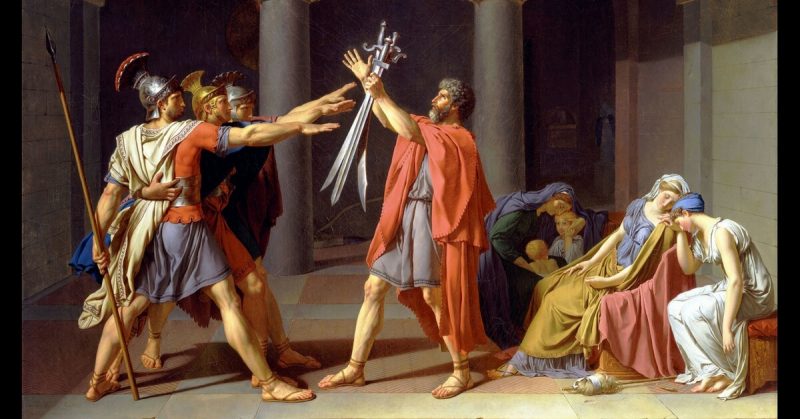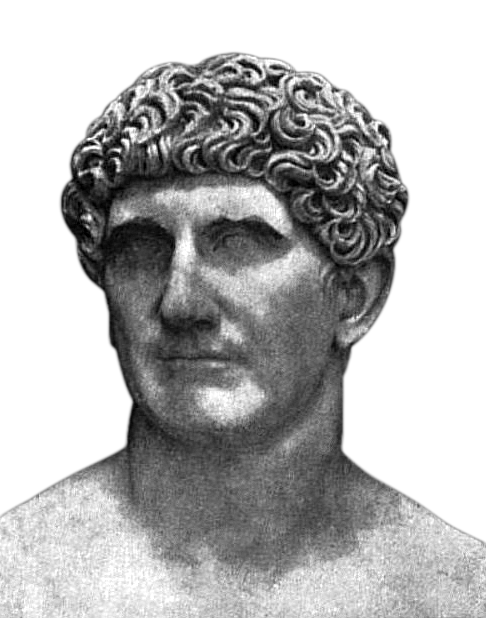In 49 BC, the Roman Empire was ripped apart by civil war. Fearing the threat of his political enemies, Julius Caesar illegally marched his army across the Rubicon River and into the Roman heartlands. The forces of the Senate, led by his old ally Pompey the Great, stood against him.
The civil war is remembered as a clash between Caesar and Pompey, but other men played important roles.
Lucius Afranius
Having chased Pompey from Italy, Caesar went to Spain to subdue his opponents strong support base there. Lucius Afranius was one of the leaders of the Pompeian forces and at first threatened Caesar’s supply lines. Caesar outmaneuvered his adversary, cutting off his water supply. Afranius surrendered.
Pardoned by Caesar, Afranius went to Africa, where he re-joined the Pompeian forces. He was captured leading Pompeian forces at Thapsus. This time he received no mercy and was put to death.
Mark Anthony
One of Caesar’s top lieutenants, Mark Anthony played a key role in the politics leading to war. His expulsion from the Senate gave Caesar his excuse to cross the Rubicon.
Mark Anthony served as Caesar’s right-hand man in the early years of the war, governing Italy in his absence and leading one wing of the army at the pivotal Battle of Pharsalus.
The two became distant after Mark Anthony’s political errors created violent instability in Rome although he would go on to become a leader of the Caesarian faction after Caesar’s assassination.
Marcus Junius Brutus
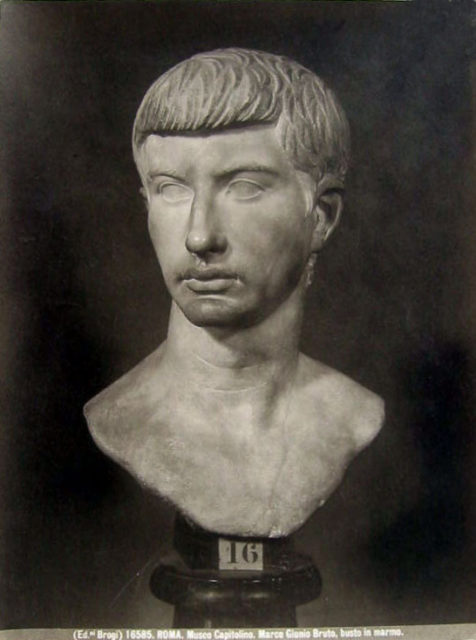
A member of the traditional Roman aristocracy, Brutus was a thoughtful and philosophical man. He was an aristocrat and therefore an officer in the Pompeian faction. He was the first of their leaders to take up Caesar’s offer of clemency to those who surrendered after Pompey was defeated at Pharsalus.
Afterward, Brutus served in senior positions for Caesar. He became unhappy as Caesar clung to what were meant to be short-term dictatorial powers. He was one of the leaders of the plot that killed Caesar.
Marcus Caelius Rufus
Initially a follower of Caesar, Caelius later tried to seize power for himself by rabble rousing in Italy. When he was prevented from doing so, he triggered a rebellion, which he claimed was in support of Pompey’s faction. Caesar’s troops crushed it, and Caelius was killed.
Caius Cassius Longinus
Cassius was a brother-in-law of Brutus and had been a lieutenant of Pompey and Caesar’s late ally Crassus. He had served the empire well in its eastern territories. Like Brutus, he sided with Pompey but sought clemency after Pharsalus and was given important positions by Caesar. Also like Brutus, he became disillusioned when Caesar clung to power. He was a co-conspirator in Caesar’s assassination.
Caius Scribonius Curio
Curio was a strong opponent of Caesar until the general paid off his massive debts in 50 BC. The following year, as Caesar set off for Spain, he put Curio in charge of four legions to deal with the Pompeiians in Africa. After taking Sicily without bloodshed, Curio went on to Africa with two of the legions. There he was overwhelmed by his opponents and killed in battle.
Cnaeus Domitius Calvinus
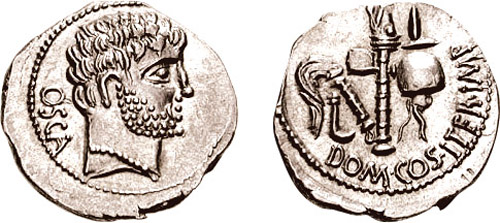
Calvinus was in charge of a campaign in Asia Minor by Caesar in 48 BC. This former consul was defeated at the Battle of Zela by Pharnaces, son of the late King Pontus of Mithridates. Caesar was then forced to go and deal with Pharnaces the following year.
Marcus Petreius
One of Pompey’s more experienced generals, along with Afranius he led Pompeiian troops in Spain in the early war. Defeated and released by Caesar, he joined the Pompeiians in Africa. After their defeat by Caesar at Thapsus, he committed suicide rather than face punishment for twice defying Caesar.
Cnaeus Pompeius
The eldest son of Pompey the Great, Cnaeus became a prominent figure in the Pompeiian faction after his father’s death. Whatever the supposed ideological issues, the civil war was largely about dynastic power, and Cnaeus had become head of his dynasty.
Among those who had escaped to Africa, Cnaeus fled from there after the Battle of Thapsus. He became the figurehead for Pompeiian resistance in Spain, leaning on the guidance of Labienus for support.
As Caesar forced the Spanish Pompeiians back in late 46 and early 45 BC, Cnaeus began to lose status among his supporters. Compelled to retreat, he triggered a confrontation with Caesar at the Battle of Munda. After intense fighting, during which Caesar himself joined the fray to keep his troops going, the Pompeiians were defeated.
Cnaeus was killed during mopping up operations after the battle.
Sextus Pompeius
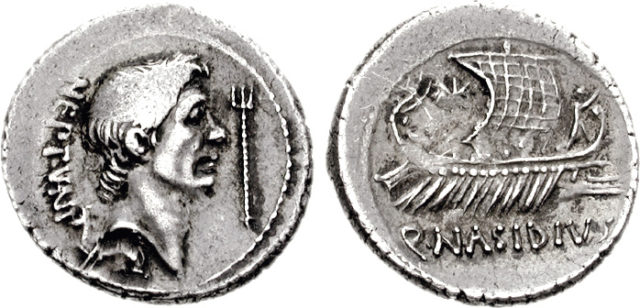
Another of Pompey’s sons, Sextus accompanied Cnaeus in Africa and Spain. Unlike his brother, he survived the disaster at Munda.
After Caesar’s assassination and its immediate aftermath, his successors viewed Sextus as a potential leader of the resistance. Sextus was given command of a fleet by the Senate in 43 BC and used it to seize control of Sicily. Years of sporadic resistance and failed attempts to repress or negotiate with him followed. Finally, in 35 BC, he was defeated and executed.
Titus Labienus
Initially an adherent of Pompey, Labienus worked with Caesar politically in the years leading up to his campaigns in Gaul. There, Labienus was Caesar’s right-hand man.
When civil war broke out, Labienus was the only senior officer to defect from Caesar to Pompey. He survived Pompey’s defeat in Greece, escaped to Africa, and from there to Spain as the Pompeiians were driven from one base to another. In Spain, he became the senior advisor to Pompey’s sons. He was killed leading their cavalry at the Battle of Munda in 45 BC, the final battle of the civil war.
Sources:
Kate Gilliver, Adrian Goldsworthy and Michael Whitby (2005), Rome at War: Caesar and his Legacy.
Christopher S. Mackay (2009), The Breakdown of the Roman Republic: From Oligarchy to Empire.
